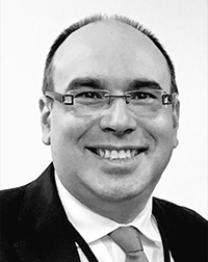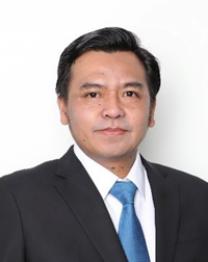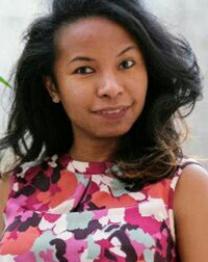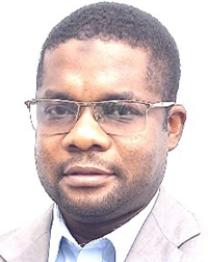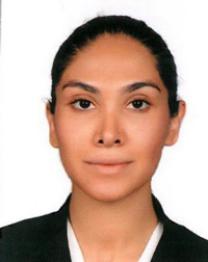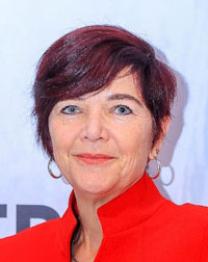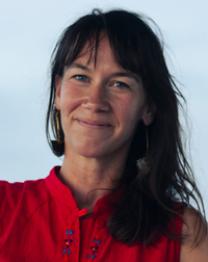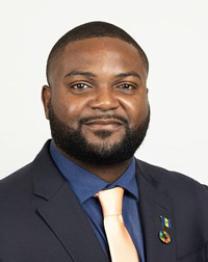Global coalition launches UN Seaweed Initiative at UN ocean conference in Nice
At the 3rd United Nations Ocean Conference, a powerful alliance of governments, UN agencies, and global partners announced the creation of the United Nations Global Seaweed Initiative (UNGSI) — a bold, collaborative platform to unlock the potential of seaweed for people and planet.
Seaweed: Nature’s untapped ally
Seaweed holds the key to some of the world’s most urgent challenges. Already used in food, animal care, biostimulants, cosmetics, and biodegradable packaging, seaweed offers sustainable alternatives to plastic, petroleum-based inputs, and synthetic chemicals. It also plays a powerful role in climate action and ocean health — from carbon capture and reducing livestock methane emissions to improving marine biodiversity and water quality. Critically, it supports coastal livelihoods in areas where fish stocks are declining.
Who’s behind the initiative?
UNGSI brings together a strong coalition of governments and global actors:
- Madagascar, Indonesia, France
- UN Trade and Development (UNCTAD)
- Global Seaweed Coalition
- United Nations Global Compact (UNGC)
- United Nations Industrial Development Organization (UNIDO)
- UNESCO’s Intergovernmental Oceanographic Commission (IOC)
Together, they aim to build momentum for the safe, inclusive, and sustainable development of the seaweed sector.
What will UNGSI do?
This unique global initiative will:
- Promote international standards, regulation, and traceability
- Support inclusive innovation and value chains
- Advance scientific research and technological development
- Mobilize blue finance and capacity building
- Raise awareness and advocate for seaweed’s potential
Currently, the seaweed sector is fragmented and largely unregulated. Many key contributors — especially women, youth, and small-scale producers — lack access to markets, finance, and support. UNGSI aims to change that.
What’s next?
The UN Global Seaweed Initiative is expected to officially launch at the UN General Assembly in New York this September 2025 — and will be open to new partners and stakeholders.
This session details the UN Taskforce on Seaweed - an initiative bringing together partners to unlock the potential of seaweed for sustainable food systems, climate resilience, and coastal livelihoods.
Seaweed stands at the intersection of nutrition, environmental sustainability, and economic opportunity, especially for developing coastal nations.
The Taskforce aims to foster coordinated action across trade, investment, science, and policy to scale up sustainable seaweed value chains.
Speakers:
Moderator:
- David Vivas Eugui, Chief of Ocean and Circular Economy Unit, a.i., Trade, Environment, Climate Change and Sustainable Development Branch, UNCTAD
Panelists:
- Mr. Mochammad Firman Hidayat, Council Member/Executive Director, Priority Economic Program Acceleration, National Economic Council, Republic of Indonesia
- Ms. Felaniaina Marie Stéphanie, Directrice, Développement de l’Aquaculture, Madagascar
- Mr. Mohamed Sheikh, Deputy Permanent Secretary, Ministry of Livestock and Fisheries, United Republic of Tanzania
- Ms. Yas Farjad, Chargée des affaires européennes, internationales et du développement économique des filières aquacoles, Bureau de l’aquaculture
- Mr. Ciyong Zou, deputy Director General at United Nations Industrial Development Organization
- Ms. Chantal Line Carpentier, Head, Trade, Environment, Climate Change and Sustainable Development Branch Division on International Trade and Commodities, UNCTAD
- Ms. Melanie Cueff, Scientific Officer, Global Seaweed Coalition, under the UN Global Compact
- Mr. Damian Prescod, Project Coordinator, Oceans Economy Unit, Export Barbados, BIDC
David Vivas Eugui is Chief of Ocean and Circular Economy Unit, a.i., Trade, Environment, Climate Change and Sustainable Development Branch, at UNCTAD.
Previously, he was a Senior Economic Affairs Officer in UNCTAD’s Trade Negotiations and Commercial Diplomacy Branch, Deputy Programmes Director at the International Centre for Trade and Sustainable Development (ICTSD), Senior Attorney at the Center for International Environmental Law (CIEL), Attaché for Legal Affairs at the Mission of Venezuela to the World Trade Organization (WTO) and Staff Attorney at the Venezuelan Institute of Foreign Trade. David is an international expert with more than 20 years of experience on legal and economic issues.
He has worked as an advisor and consultant for various institutions, international and national organizations and has lectured on intellectual property, trade, oceans economy and environmental law at the University of Strasbourg (CEIPI), Universidad de Buenos Aires (Argentina), Universidad Javeriana (Colombia), Maastricht University (the Netherlands), WIPO Distant Learning Academy, and University of Business and International Studies (Switzerland).
He holds a JD from the Universidad Catolica Andres Bello, an LLM from Georgetown University and a Master in Transnational Business from the Universidad Externado de Colombia.
Prof. Mohammed Sheikh received a Ph.D (Marine Sciences) from the National University of the Ryukyus, Okinawa Japan between 2005 and 2008. He was awarded a Post Doc by the Japan Society for Promotion of Science (JSPS) from 2008-2010. He was a senior research fellow under the CV Raman program at University of Bangalore, India (2012).
He is also an alumnus of Harvard Kennedy Governance School alumnus of Innovation for economic development training (2014) and scientific translation to policy issues (2019) from Harvard University (USA) and the Institute of Development Studies (IDS), Brighton UK, respectively.
Sheikh is currently a Director of Fisheries of the Ministry of Livestock and Fisheries of the United Republic of Tanzania. He also served as a Director of Research (Physical Sciences) at the Tanzania Commission for Science and Technology (COSTECH) from 2017-2020. Sheikh is a Professor of Marine/aquatic ecosystem health and Ecotoxicology. Much of his work has been on analyzing toxicological effects of hazardous chemicals in marine and aquatic ecosystems. He has given numerous invited talks in the topic of marine pollution and eco-toxicology. Prof Sheikh has been working with renowned research groups from Denmark, Japan, Germany, Belgium, Malaysia, UK etc.
Prof. Sheikh is an author or co-author of over 50 refereed scientific papers appeared in reputable journals such as Marine Pollution Bulletin, Geochimica et Cosmochimica Acta, International journal of environmental Analytical chemistry, Regional studies in Marine Science Journal and Remote sensing to mention a few. He served as a team leader or an active team player of various multinational funded research projects such as BSU (DANIDA), HDIF (DFID), VLIR-UOS South Initiative among selected projects.
Lantovololona Felaniaina is a marine biologist working at the Ministry of Fisheries and Blue Economy in Madagascar, as the Director of Aquaculture department.
In her current role, she coordinates all activities regarding freshwater and marine aquaculture and liaises with national and international stakeholders on these matters.
She holds a double master’s degree, one in bioaquatic sciences and the other in molecular biology, obtained from Tokyo University of Marine Science and Technology and Bangor University in the UK.
Prof. Mohammed Sheikh received a Ph.D (Marine Sciences) from the National University of the Ryukyus, Okinawa Japan between 2005 and 2008.
He was awarded a Post Doc by the Japan Society for Promotion of Science (JSPS) from 2008-2010. He was a senior research fellow under the CV Raman program at University of Bangalore, India (2012). He is also an alumnus of Harvard Kennedy Governance School alumnus of Innovation for economic development training (2014) and scientific translation to policy issues (2019) from Harvard University (USA) and the Institute of Development Studies (IDS), Brighton UK, respectively.
Sheikh is currently a Director of Fisheries of the Ministry of Livestock and Fisheries of the United Republic of Tanzania. He also served as a Director of Research (Physical Sciences) at the Tanzania Commission for Science and Technology (COSTECH) from 2017-2020. Sheikh is a Professor of Marine/aquatic ecosystem health and Ecotoxicology. Much of his work has been on analyzing toxicological effects of hazardous chemicals in marine and aquatic ecosystems. He has given numerous invited talks in the topic of marine pollution and eco-toxicology. Prof Sheikh has been working with renowned research groups from Denmark, Japan, Germany, Belgium, Malaysia, UK etc.
Prof. Sheikh is an author or co-author of over 50 refereed scientific papers appeared in reputable journals such as Marine Pollution Bulletin, Geochimica et Cosmochimica Acta, International journal of environmental Analytical chemistry, Regional studies in Marine Science Journal and Remote sensing to mention a few. He served as a team leader or an active team player of various multinational funded research projects such as BSU (DANIDA), HDIF (DFID), VLIR-UOS South Initiative among selected projects.
Yas Farjad is an aquaculture specialist working at the General Directorate of Maritime Affairs, Fisheries and Aquaculture within the French Ministry responsible for fisheries and aquaculture. In her current role, she is in charge of European and international affairs, as well as the economic development of the aquaculture sector.
Prior to joining the public sector, she founded and managed a company dedicated to aquaculture production and consulting services for seafood products. In this role, she worked with institutions and partners across several countries to support market analysis and identify commercial opportunities for sustainable aquaculture products.
In parallel with her professional activities, she has also contributed to scientific publications related to marine ecosystems and biodiversity, with a particular interest in microalgal communities. She holds a double master’s degree, one in marine biology and the other in fisheries and aquaculture sciences, obtained from the engineering school Agrocampus Ouest in France.
The Directorate of Technical Cooperation and Sustainable Industrial Development oversees the Organization’s normative contribution to the Sustainable Development Goals, in addition to supporting and advancing the application of strategies and interventions for sustainable industrial development in the environment, energy, and SME areas. Advancing competitiveness and job creation are also key impact dimensions for the Directorate, in addition to the advancement of digitalization and artificial intelligence. Mr. Zou is also the Director General’s Special Representative for the G77 and China.
Before joining UNIDO, he performed multiple roles, including as Deputy Director General of International Department at the Chinese Ministry of Finance and Alternate to the Chinese Executive Director at the World Bank, and Global Environmental Facility Operational Focal Point for China.
Chantal Line Carpentier joined UN Trade and Development (UNCTAD)'s Division on International Trade and Commodities (DITC) in 2014, after serving as Chief, UNCTAD New York Office of the Secretary-General. She brings to the Branch over 25 years of work experience in international trade, and environmental and agro-economics.
Prior to working with UNCTAD, she supported the Commission on Sustainable Development and served as Major Groups (of non-State actors) coordinator for the UN Rio+20 Conference and the SDGs negotiations at the United Nations Department of Economic and Social Affairs (UNDESA). She also supported the sustainable consumption and production and sustainable agriculture negotiations.
As Head of the North American Free Trade Agreement Commission for Environmental Cooperations, she lead work on the nexus of environment, economy, and trade. She also served as Agro-environmental Policy Analyst for Winrock International, and post-Doctoral fellow/Brazil office manager for the International Food Policy Research Institute.
She has an extensive list of publications on sustainable agriculture, trade and environment, sustainable consumption and production, financing for sustainable development, stakeholder engagement, global value chains, micro, small and medium enterprises, and economic empowerment of women.
She obtained a PhD. in Agro-Environmental Economics from Virginia Technology and MSc. and BSc. from McGill University.
Melanie Cueff is a Research Engineer at the French National Research Center (CNRS) and serves as the Scientific Officer of the Global Seaweed Coalition, hosted by the United Nations Global Compact (UNGC). The Coalition is a global partnership established to support the safe and sustainable scale-up of the seaweed sector.
Melanie has recently focused on topics related to seaweed and genebanks, as well as ecosystem services provided by seaweed farming. Previously, she worked on addressing the challenge of invasive sargassum in the Caribbean, focusing on valorization projects.
Her experience spans across multinational businesses, governmental institutions, and startups, bringing a diverse background to her current work in research and sustainability.
Damien Andre Prescod holds a Master of Science in Telecommunications from the SUNY Polytechnic Institute, Utica New York, possesses a wealth of climate mitigation and adaptation experience attained during an eleven year tenure at the Caribbean Institute for Meteorology & Hydrology (CIMH) where for six years he served as representative for the British Commonwealth Territories as a CIMO Metrology Expert for Region IV of the WMO.
He holds a Diploma in Global Environmental Policy from the University of Geneva and is a certified Project Management Professional (PMP) attaining certification from the Project Management Institute (PMI). He is pursuing his Doctorate in Environmental Management specializing in Oceanographic Metrology with particular focus on the Accuracy of Ocean-centric Meta-Data and its use in Oceans & Climate Policy.
He manages and coordinates multiple initiatives within the Oceans Economy Unit at Export Barbados (BIDC) focusing on private and public sector collaboration for Blue Food Trade, primarily focusing on Marine Finfish Aquaculture, trade of naturally caught Yellow Fin and Big Eye Tuna as well as Seamoss and Seaweed cultivation in Barbados. He is also Managing Director of Ocean Ciara Environmental Consultancy Services, pioneering the Barbados’ first Real Time In-situ Marine Health Monitoring Network.

